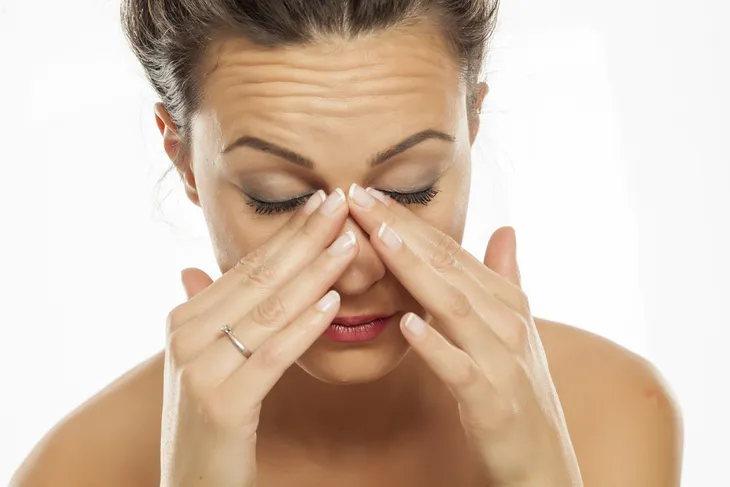For some autumn might bring to mind pumpkin-carving, Halloween, Thanksgiving turkey, and hot apple cider. However, for others it could bring headaches, colds, flues, and joint pain. And it turns out that the weather changes ushering in the fall season actually do affect our health.
It’s true that many people blame the bone-chilling autumn temperatures for their achy joints—and the fact is that they may actually be right. Medical scientists have linked the weather extremes taking place in the changing fall season for the following health responses…
1. Heightened Risk of Cold and Flu
Many of us are stricken with a nasty cold or flu as the temperatures dip in autumn. And it seems the drastic weather changes taking place as fall rushes in—particularly the rapid cold swings—actually does weaken the immunity of many folks.
2. Increase in Libido
Let’s just say autumn is the ideal time to fall into bed. All puns aside, as nature starts to turn in preparation for the winter season—the leaves change color, shed their trees, and the ground grows cold—our brains actually emit increased levels of dopamine (the feel good hormone linked to increased libido) and let’s just say, it’s a little tougher to get out of bed and a little easier to get in-between the sheets.
3. Headache Pressure
Autumn calls for certain weather changes that cause the barometric pressure to increase, and when that happens, those prone to migraines suffer the consequences. The environment will actually cause a combination of increased pressure in the brain and decreased efficiency of the brain’s pain receptors.
4. Heart Rate Increases
No it’s not all that raking and gutter cleaning that causes your heart beat to flutter. Well it might be part of it, but a dip in temperature will actually cause your blood vessels to constrict to conserve heat, which in turn causes your blood pressure to elevate slightly. For healthy individuals, this slight blood pressure increase isn’t worrisome, but those with hypertension might want to take it easy come autumn to avoid a sudden heart attack.
5. Blood Sugar Spikes
Diabetics take heed—autumn will cause your blood-sugar to rise—and you can’t blame the Halloween candy alone. No scientists link low pressure or cold fronts common to this season to increased blood viscosity, which causes an uncontrolled spike in blood sugar.
6. Prone to Dehydration
You might notice that when the weather cools; you get a little parched. This might seem a little backwards, but the body is actually prone to dehydration during colder months because we opt for more caffeinated diuretics (i.e., teas and coffee).
7. Joint Aches and Pains
The increased barometric pressure not only affects your noggin; it affects the fluid pressure in your joints too. This barometric rise often results in increased fluid pressure and achy pain, particularly prior to storms which are so common to autumn.
8. You May Feel Lonely
As the days get shorter and the nights extend starting in fall, you may want to reach out and touch someone. It’s true; a study at the University of Newcastle showed an increase in the length of telephone calls to close family and friends during months where weather was cold and wet.
9. Trigger Asthma Attacks
It turns out that thunderstorms don’t just cause us to tremble under the sheets in fear; they can trigger asthma attacks as well. Studies show that cold weather thunderstorms can cause inflamed airways, restricted breathing, and asthma attacks, which are exacerbated by cold and stiffness in the throat and chest.
10. You Become Smarter
Did you know that you’re smarter when it’s cold outside? And a study out of the University of South Wales in Australia proves it! Results showed that grocery shoppers had stronger recall on cloudy and cold days versus to bright and sunny days.













